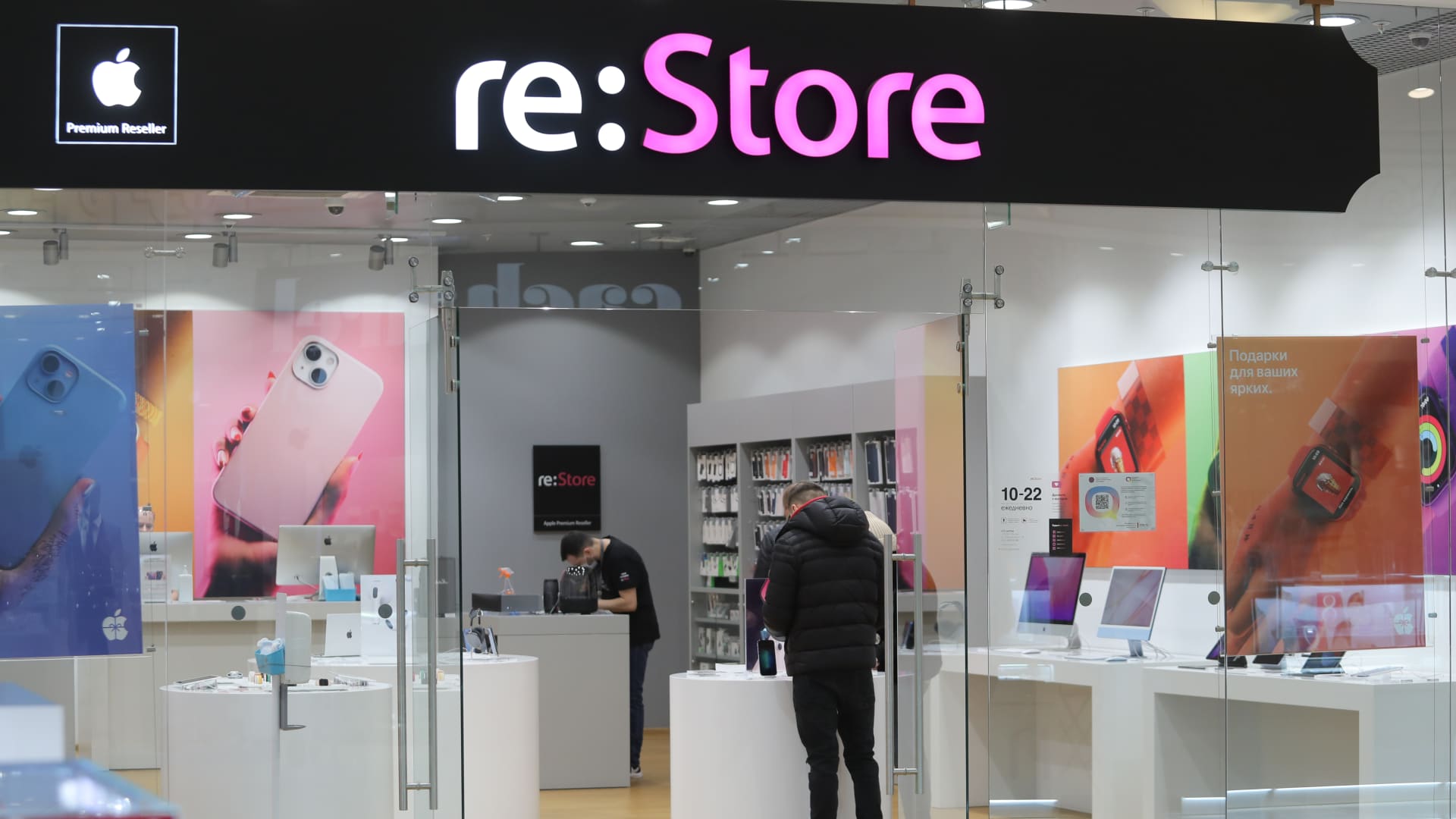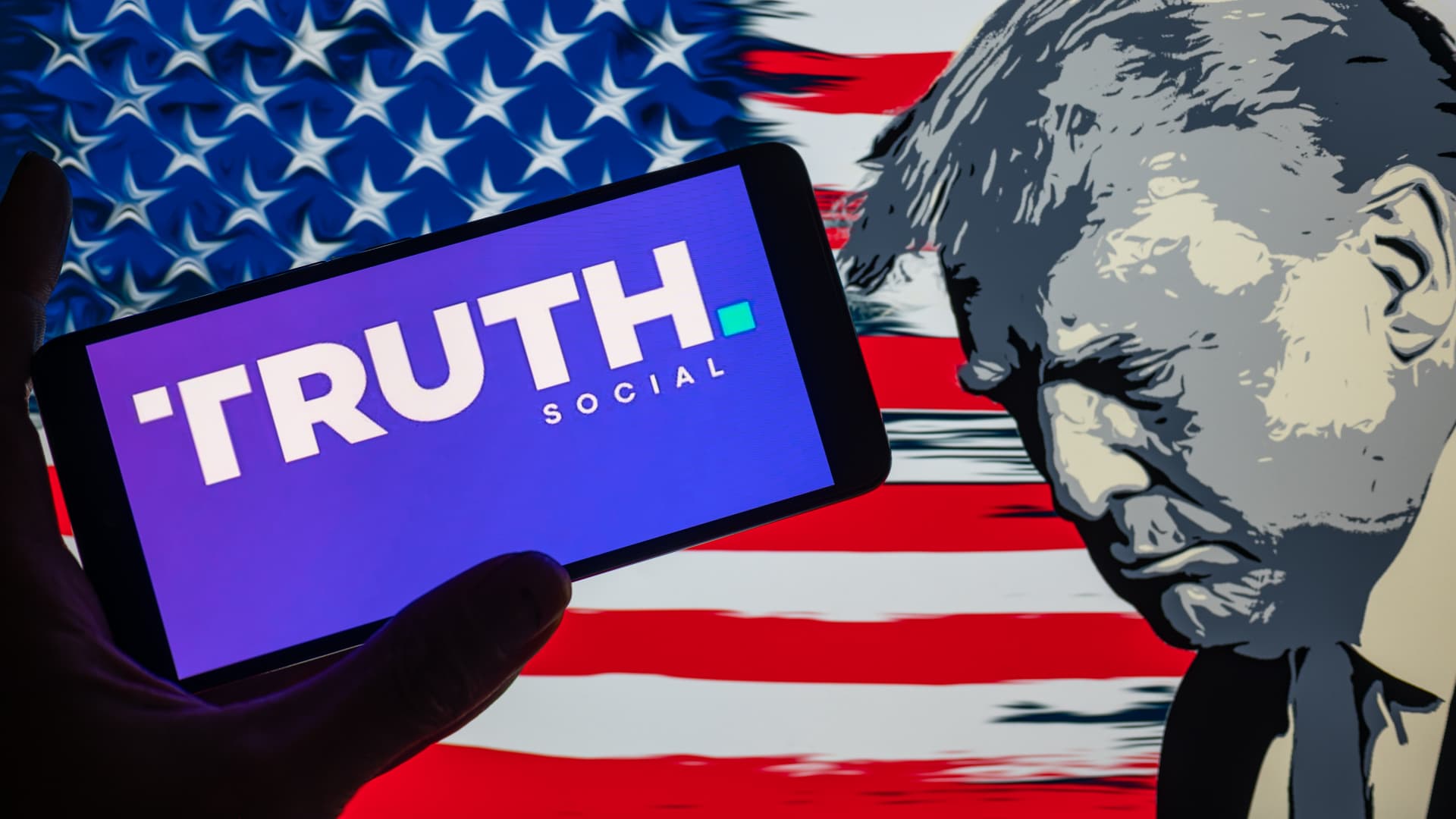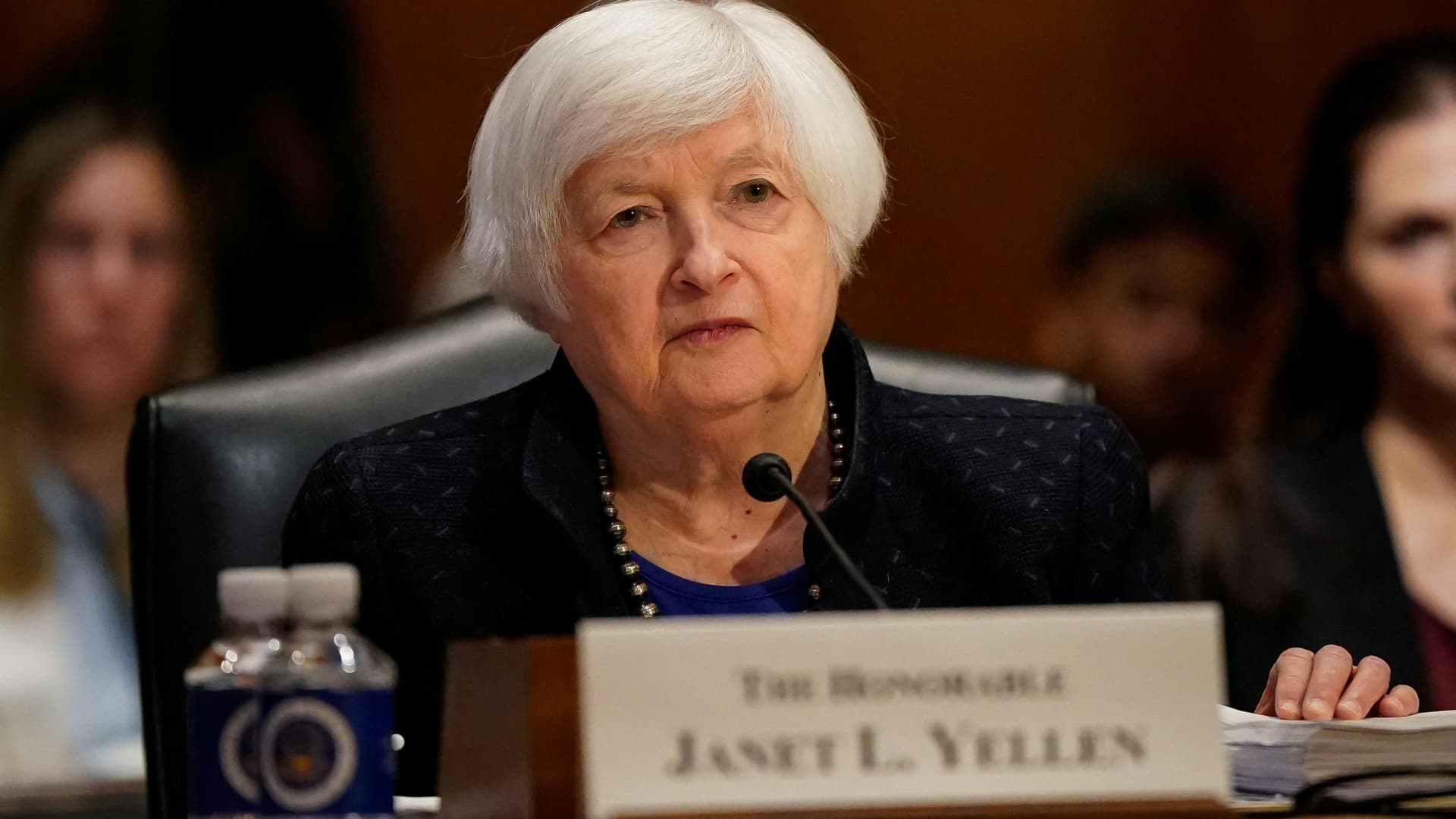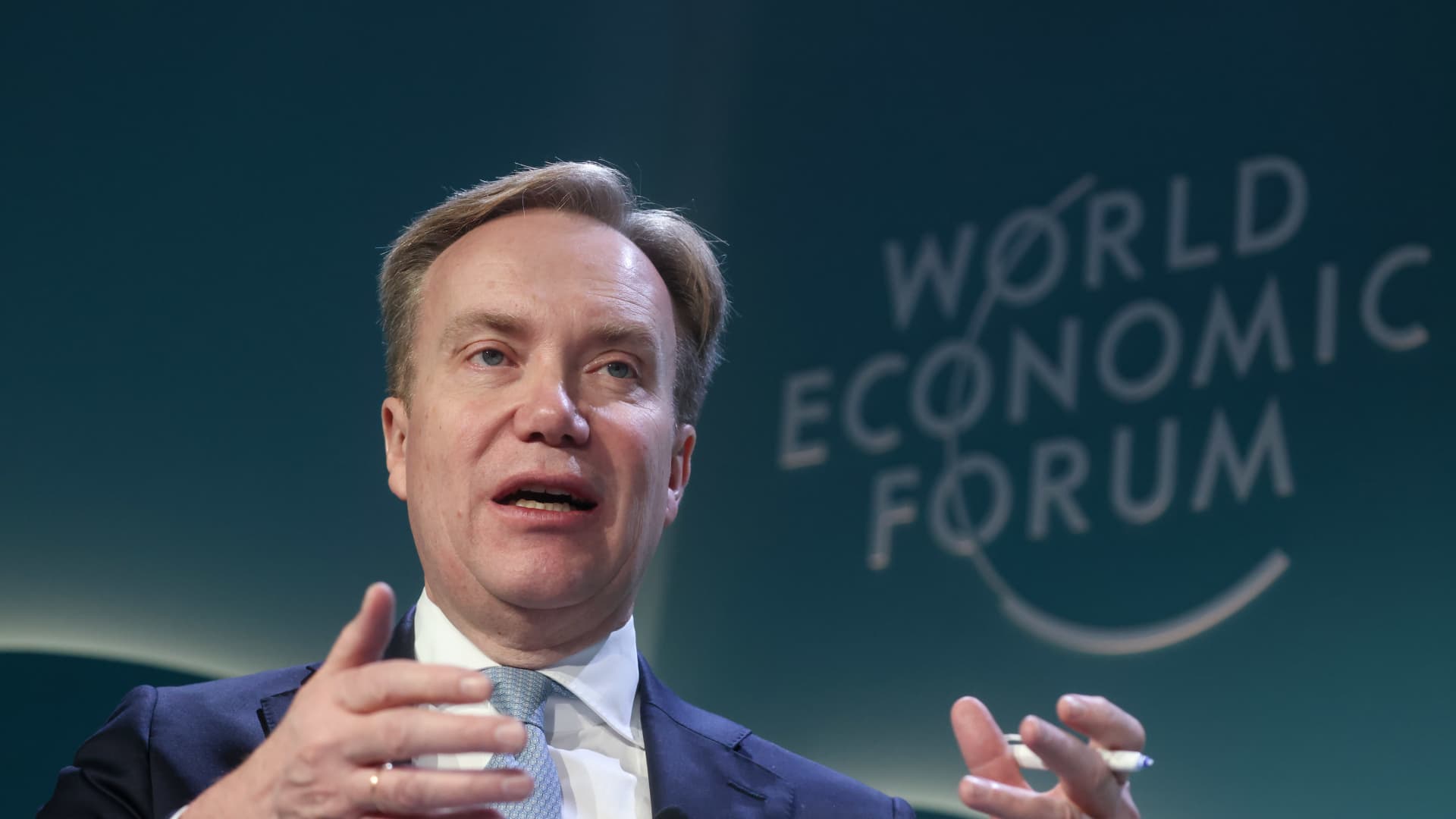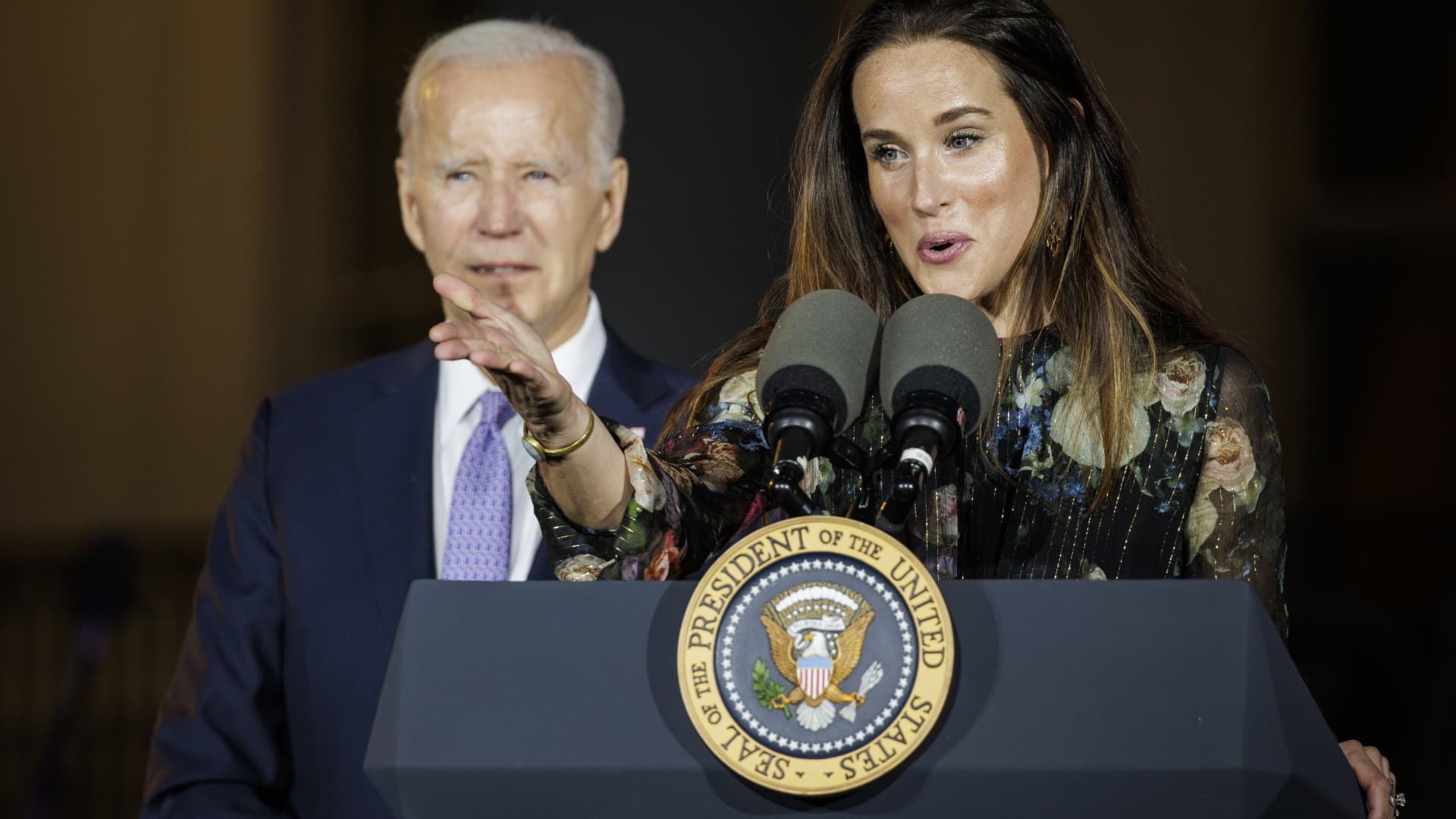Apple’s Vision Pro headsets are displayed at an Apple Store on the day of their first sale on February 2, 2024 in Los Angeles, California, United States.
Mike Blake | Reuters
WASHINGTON — Just a week after Russia launched its full-scale attack on Ukraine in 2022, Apple announced that it would stop exporting its products to the country. “We are deeply concerned about the Russian invasion of Ukraine and stand with all people suffering from the violence,” the company said in a statement dated March 1, 2022.
But now, days before the two-year anniversary of the invasion, stores in Moscow are abuzz with Apple products — and Russian customers are making appointments for demonstrations of the brand new Apple Vision Pro at stores just blocks from the Kremlin.
Russians should not have access to the Vision Pro: The brand new product, which was launched on February 2nd and became available in Moscow just a few days later, is officially only available in the United States.
When asked about Vision Pro sales in Russia, an Apple spokesperson told CNBC: “As you know, Apple Vision Pro is only available at Apple retail stores in the United States.”
But a CNBC survey of Russian websites and tech blogs, as well as channel checks in stores in Moscow, suggest that Apple’s statement does not match reality.
The fact that customers in Moscow can buy the Vision Pro before people in London can officially do so is stark evidence of the difficulty of untangling the global economy and the nuanced choices that American companies have made despite following it Expressing horror at Russia’s atrocities in Ukraine.
Locally in Moscow, Apple products including MacBooks, iPhones and iPads are available in stores, although prices may be higher than before the invasion. The Russian version of Apple’s technical support website is still active, but the official Apple Store website is offline and displays the message “The Apple Store is currently closed” in Russian.
People stand in a “re:store,” an Apple resale store in a shopping center in St. Petersburg. Apple has stopped selling its products in Russia because of Russia’s war of aggression against Ukraine.
Igor Russak | Picture Alliance | Getty Images
Nevertheless, a former official Apple dealer in a retail store “re:Store” (pronounced Ree-store) offers Apple products for sale in stores in Moscow. The chain’s website features a large photo of a user tethered to an Apple Vision Pro and the iconic Apple logo that reads “Vision Pro: The era of spatial computing has arrived.” Apple Vision Pro is already on sale.”
At a re:Store location in Moscow, salespeople are offering demonstrations of the new safety glasses by appointment, and the cheapest Vision Pro model is on sale for about $6,307 — more than 57% more than the U.S. retail price
Just a day after CEO Tim Cook attended the spectacular launch of the Apple Vision Pro at the company’s flagship store in New York, a popular Russian tech blogger named “Romance768” posted a video to his more than 1 million followers, showing him unpacking his own Apple headset and how it works.
A few days later, he posted a video giving his opinion on the device while walking through Moscow’s posh Patriarshiye district.
While sitting in a restaurant, he tells viewers that even though he turns the volume all the way up, customers near him can’t hear anything. He is seen testing the device in the re:Store shop in Moscow’s GUM shopping center, which is located next to Red Square opposite the Kremlin.
The blogger’s real name is Sergey Romantsev. In an email exchange with CNBC, he explained how he received the Vision Pro so quickly in Moscow: “There’s nothing complicated about it,” he wrote, saying his team pre-ordered the device in New York. “The person received it on the day of the start of sales and immediately flew to Moscow,” Romantsev wrote. “We brought Vision very quickly through New York, Istanbul and Moscow.”
He explained that Apple devices, although expensive, are available in Russia. “Apple officially doesn’t sell anything in Russia. Russian companies buy equipment in other countries and bring them to their stores. This has led to a huge increase in prices. So Vision Pro in Moscow costs not $3,500, but $5,000.”
But at least some consumers are willing to pay that price: “Apple is very popular in Russia and we keep an eye on all new products,” Romantsev wrote. “We’re trying to get them. It’s tough.”
Read more about CNBC’s politics coverage
He said he had no difficulty operating his Vision Pro in Russia. However, things are different with the American competing product Metathe meta quest 3.
In 2022, a Russian court banned Facebook and Instagram from the country after Meta relaxed its hate speech policies against Russian soldiers following Russia’s invasion of Ukraine. “Meta is recognized as an extremist organization in Russia,” Romantsev wrote. “Meta servers are blocked in Russia. To activate Quest 3, you need to install a VPN on your home WiFi. “Also, there are many limitations because working over VPN all the time is very difficult.” A Meta spokesperson declined to comment for this story.
None of this happened by chance. The Russian government has done everything to ensure that many Western products continue to flow into the country. In 2022, the Russian Ministry of Industry and Trade published a document allowing the import of Apple products into Russia even if official deliveries to Russia are prohibited or suspended by the manufacturer.
In Russia this is known as “parallel import”. The exact supply chain that meets this demand is unclear, but it likely involves former Soviet republics or import-export companies in the Middle East.
Back in 2022, Apple laid out a series of concrete steps it would take to boost its business in Russia. The company said it had “paused” all product sales in Russia and stopped all exports to Apple’s distribution channel in the country. The company said it had removed state-controlled Russian media channels RT News and Sputnik News from the App Store outside Russia and restricted Apple Pay and other services.
Some internet activists in 2022 called on American tech firms to continue providing Russian customers with the tools they need to access information on the open internet, and especially on messaging apps such as Telegram, WhatsApp and Threema.
But even before its withdrawal from the country in 2022, Apple was struggling to reconcile open access with the demands of the Russian government. According to media reports, the company deleted an app linked to opposition leader Alexei Navalny, who died in a Russian prison this week, and agreed to promote state-run Russian apps in the country. An Apple spokesman declined to comment on the moves.
Still, the continued sales of Apple’s consumer-focused products in Russia are unlikely to raise eyebrows in Washington. “We are focused on disrupting Russia’s procurement of military industrial base supplies,” a White House official told CNBC.
“In general, we do not have a comprehensive trade embargo in effect and there are exemptions for many communications-related devices under our sanctions and export controls as long as they are not directed at sanctioned Russian end users,” the official said.
— CNBC’s Steve Kovach contributed to this report.
Don’t miss these stories from CNBC PRO:
Source link
2024-02-21 14:53:40
www.cnbc.com

